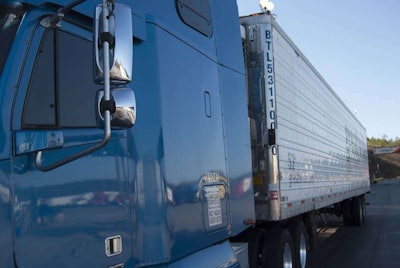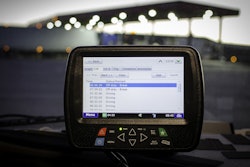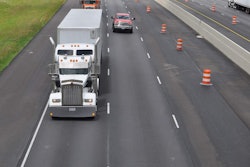 Provisions in the House bill would plainly state carriers are exempt from complying with state laws requiring them to give paid breaks to drivers.
Provisions in the House bill would plainly state carriers are exempt from complying with state laws requiring them to give paid breaks to drivers.The House’s Appropriations Committee late Monday stamped approval via a 31-20 vote on a bill that would exempt carriers and drivers from state laws requiring paid meal and rest breaks for employees. It also provides livestock haulers roughly 10 more months to comply with the federal government’s electronic logging device mandate.
The bill, an appropriations bill funding the Department of Transportation and the Department of Housing and Urban Development through the 2018 fiscal year, now moves to the full House, where it can be further debated and amended.
In addition to the policy riders on breaks and the ELD mandate, the bill also blocks the Federal Motor Carrier Safety Administration from pursuing a Safety Fitness Determination rule until it implements reforms to the Compliance, Safety, Accountability carrier scoring system.
For the trucking policy reforms to become law, the bill must pass the full House and be passed by the Senate. The Senate has not yet released a 2018 DOT funding bill, however, and it’s unclear whether lawmakers there intend to include such policy riders in their version of the bill.
The House version of the so-called THUD appropriations bill trims the DOT’s budget by about $650 million compared to the current fiscal year, though funding for FMCSA and trucking enforcement received a bump, with lawmakers allocating $114 million more than in the 2017 fiscal year.
For more in-depth coverage of the trucking riders in the bill, see CCJ’s prior coverage at this link.
In short, the meal and rest breaks provision is meant to provide clarity to carriers regarding increased efforts at state levels, most prominently in California, to dictate drivers’ schedules. The provision reinforces a 1994 law that asserts the federal government’s authority in regulating drivers’ hours of service, effectively exempting carriers from requirements to allow drivers paid meal and rest breaks and protecting them from court-ordered payouts regarding such. The American Trucking Associations, among others, are strong proponents of the provision.
Other, driver-focused groups argue the provision is unnecessary and effectively ends state-level initiatives to reform driver pay models.










